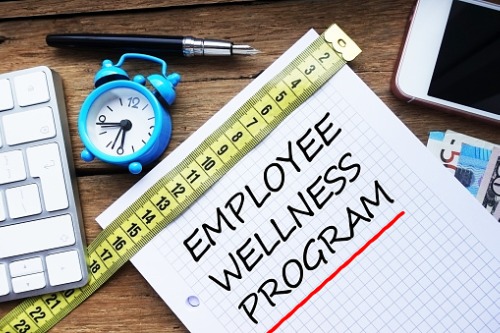

The coronavirus crisis has changed the way we travel, how we interact with others, and perhaps most significantly, how we work. As a result, the operating environments for many firms look a lot different today than they did just six months ago and will continue to evolve amid this new normal.Many companies have already implemented processes and ways of working that will impact how they maintain an engaged workforce into the future, and they will also have to think carefully about how to keep their employees connected and healthy.
During a recent Marsh webinar titled, “Managing People Risk and Motivating Employees Post COVID-19,” experts from the organization provided insight on how risk managers and HR can collaborate to ensure people at work are supported across all aspects of engagement, productivity, and morale, though at the top of the list is health, which doesn’t refer to just physical health.
“Even before COVID, when researchers asked people about what [leads to] life satisfaction, people said mental health first, then quality of work and relationships,” said Dr. Wolfgang Seidl,workplace health consulting leader for Mercer Marsh Benefits. “There is an opportunity here now to turn adversity into something more positive, as employers are realizing that they are at a crossroads to transform their workplaces in ways that genuinely allow people to thrive at work, and which will also allow businesses and society to thrive.”
Managers play a critical role in ensuring that their employees are looked after and feel supported, though when it comes to mental health many feel that there are barriers in their organizations preventing them from providing that support, according to Marsh. Few managers have received training on understanding workplace stressors, further compounding the problem, which is exacerbated now by the coronavirus pandemic. Marsh has meanwhile provided this type of training to companies.
“We teach managers the necessary empathy skills and an advanced understanding of duty of care, which is more important than ever before when managers have to run teams that are remote,” said Seidl. “You might be surprised and say, ‘Can we really learn empathy?’ Yes, we can, and what’s more, empathy means meeting people where they are, which is hugely important in management, but also in sales and business performance.”
With the move to more flexible work options across the globe, compassionate leadership will be ever more important, especially considering the social and economic fallout from COVID-19. Those countries that have been successful at fighting back the spread of the virus have largely had leaders at their helms that have shown empathy to their constituents and concern for their well-being, and the same qualities should be evident at company level. After all, a focus on employee well-being is also beneficial for productivity.
“A major study into the link between well-being and productivity shows that employers who prioritize employee health and well-being are up to 10.6 days more productive per employee than those that have just average well-being programs,” explained Seidl.
With claims stemming from mental health issues, as well as Post-Traumatic Stress Disorder (PTSD) caused by COVID-19 likely facing organizations in the future, companies would do well to ensure that they have proper support programs in place for their staff today and, also, to ensure that there are clear integrations between these programs and the various providers who deliver those services, in turn making the flow of data and information seamless.
In this environment, Employee Assistance Programs (EAPs) will become critical. These programs offer free and confidential assessments, short-term counselling, referrals, and follow-up services to people in the workforce who encounter personal, as well as work-related problems, acting as a helping hand to employees during a crisis like the one we’re all facing now.
“A counselling helpline is the first port of call for anxiety issues, depression or loneliness, but also for people working from home, we have to think about domestic violence, which is one of the big downsides of working from home,” said Seidl. “The EAP also provides guidance in financial and legal matters & hellip; many of them have fully-fledged insolvency practitioners on staff who can help employees with debt issues, so it’s a good first access point for various issues, not just mental health issues.”
EAPs also provide bereavement support, which is highly relevant in today’s world, and critical incident services, which means that they can help companies with employees who are affected by the death of a colleague or other incidents like a pandemic, as well as traumas like terrorist attacks or worksite accidents.
As companies move forward into the new normal, they’ll have to consider how to do more than just be “reactive to mental health issues, and [instead] make our health and well-being programs more productive, more systemic, and strategic,” said Seidl.
